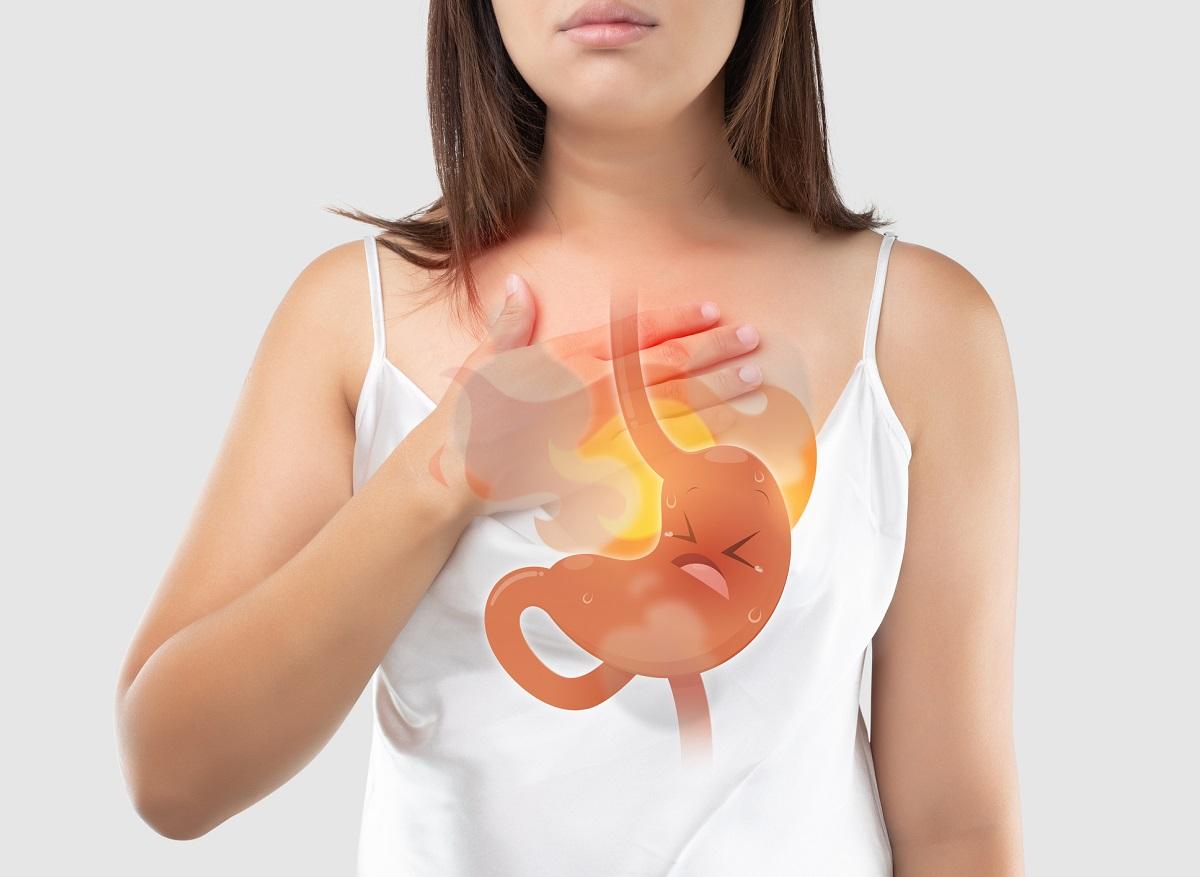
Watch what you eat and how you eat
Heartburn: Some people experience it occasionally, others daily. Fortunately, adjustments in your diet or lifestyle can reduce or even prevent complaints. You can read what you should pay attention to in this article.
Gastric acid
Your stomach makes one and a half liters of stomach acid every day. Stomach acid is a digestive juice. It contains, among other things, hydrochloric acid, an aggressive liquid that helps to digest food quickly and effectively. In addition, it also kills any pathogenic bacteria that have come along. Your stomach is safely lined with a thick layer of mucus and therefore well protected against this acid. Your esophagus does not have such a protective layer and is therefore vulnerable to the corrosive acid. To prevent damage from stomach acid, the junction between the esophagus and the stomach is closed by an esophageal sphincter. This sphincter ensures that the transition is only open when a bite of food is on its way to the stomach. But sometimes the muscle doesn’t close enough and stomach acid flows back into the esophagus. This causes the burning sensation, throat problems, dental problems (stomach acid can damage enamel), coughing and, in extreme cases, irritation or inflammation of the esophagus.
Combination of factors
Lifestyle and eating habits often ensure that the esophageal sphincter does not hold back enough acid or that too much stomach acid is produced. Eating too much, too fast or too greasy, or excessive consumption of coffee, alcohol, soft drinks and cigarettes and possibly stress, all have an effect on heartburn. Usually it is a combination of factors. If you suffer from heartburn, the following tips can help.
Watch what you eat
People with heartburn can basically eat and drink anything. What makes one person’s complaints worse, does not cause problems for another. So try out what gives you complaints. Products that often cause heartburn are alcohol, peppermint, onions, sharp herbs, chocolate, coffee, tea and cola. Other carbonated drinks can also cause complaints, just like acidic fruit juices such as orange juice. Milk is often recommended in normal amounts, precisely because it neutralizes stomach acid. For example, a few sips of milk can reduce the symptoms of heartburn. Do not drink extra large amounts of milk, because this stimulates the secretion of acid. Drinking small sips of water or chewing gum can also relieve symptoms of heartburn. Chewing produces saliva and, just like drinking small sips of water, this can ensure that stomach acid flows in the right direction and does not rise.
watch how you eat
A general guideline for heartburn is that high-fat meals and large amounts often cause complaints. It is therefore better to eat 6 small than 3 large meals a day. This prevents the stomach from becoming too full and prevents the stomach contents from flowing back into the esophagus. The way you eat also influences the risk of heartburn. Eat slowly and chew well. This makes it easier for the food to mix with the digestive enzymes from your saliva, which aids in digestion. Sit upright during and after eating, so that the stomach does not get trapped. Try not to eat too late in the evening and sit or stand upright for at least 3 hours after a meal. If you lie down with a full stomach, the stomach contents rise faster.
What else can you pay attention to?
People often have complaints, especially at night when they are lying in bed or when bending over. This has to do with the position of the stomach and esophagus. You can reduce the pressure on your stomach yourself. Raise the head of your bed and preferably sleep on your left side. For example, your stomach is lower than your esophagus, so that your food is not inclined to go back to your throat. It is better not to put an extra pillow under your head, because you will then be in a ‘kink’ and this will increase the pressure in the stomach. If there is a lot of fat around your waist, the pressure on the organs in your abdomen is greater. This can cause symptoms such as heartburn. Therefore, ensure a healthy weight, and do not wear tight clothing. Smoking can also cause heartburn. Nicotine can relax the sphincter between the esophagus and the stomach, allowing the stomach contents to rise again. And finally: relax! When you are tense, your body produces more stomach acid. Also, the squeezing motion of the stomach may become slower or more irregular. It is therefore not surprising that you can experience stomach problems when you are nervous or tense. Incidentally, stress in itself cannot cause a stomach disorder, but it can aggravate existing complaints.

















